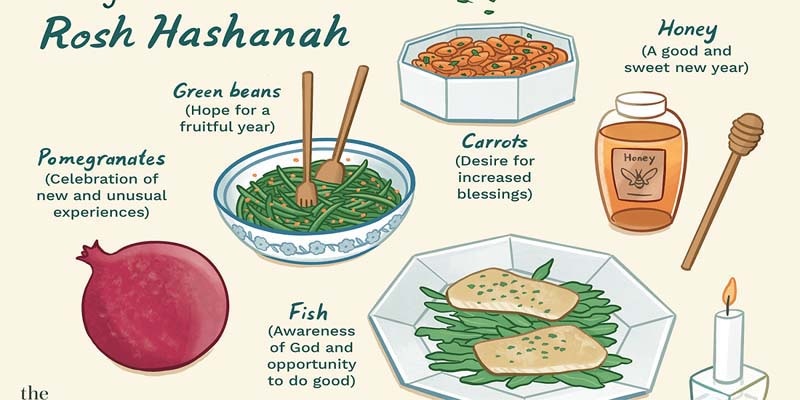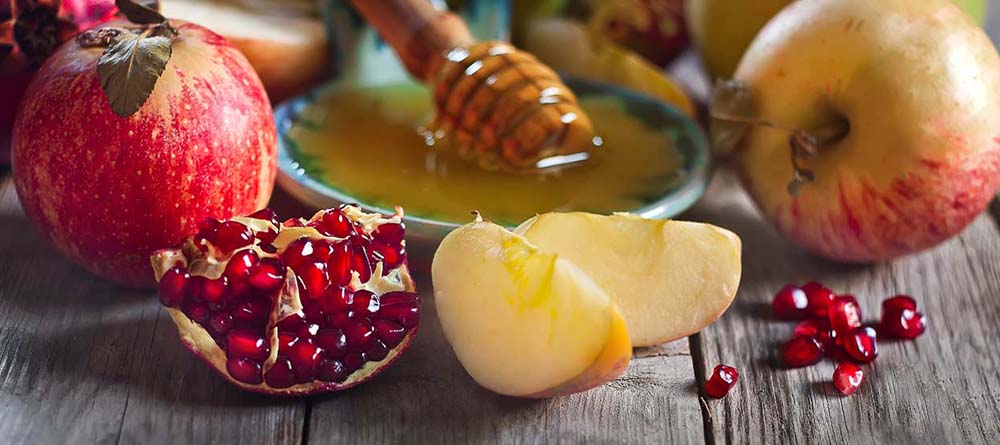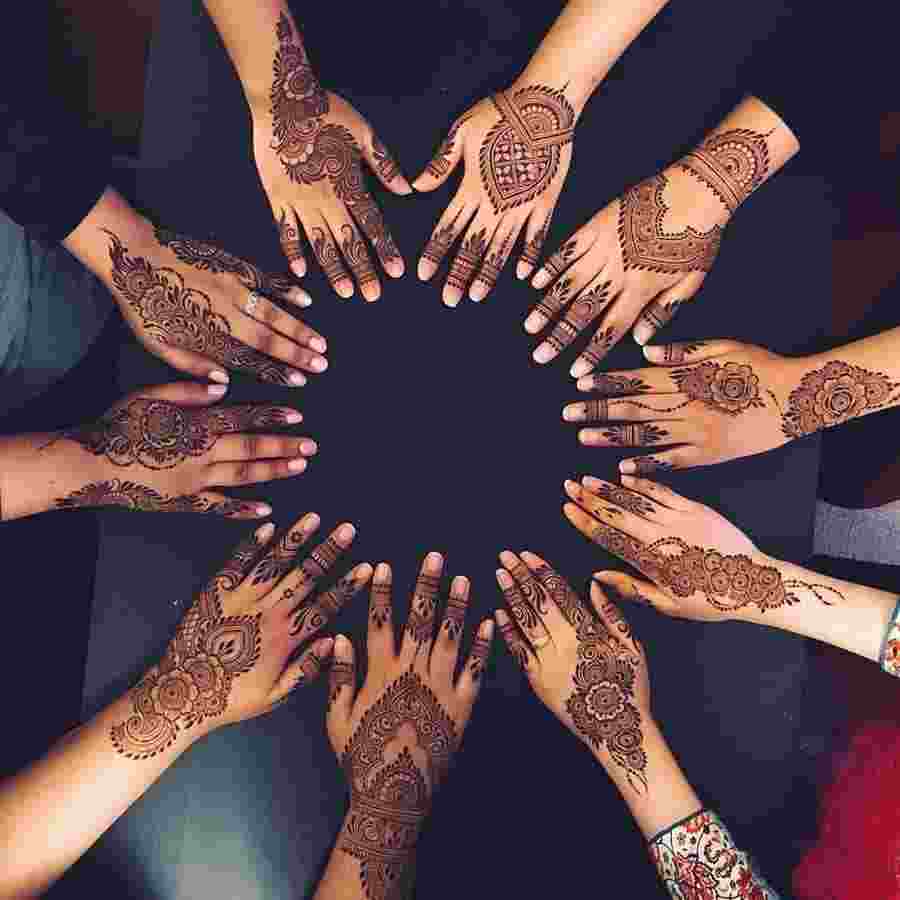The Rosh Hashanah is the autumnal festival celebrating the start of the Jewish New Year. It occurs on the first and second days of Tishri. In Hebrew, the phrase Rosh Hashanah literally means “head of the year” and thus the holiday is commonly known as the Jewish New Year. This name is somewhat deceptive to those unaffiliated with Jewish practices, however, as there is little similarity between Rosh Hashanah, one of the holiest days in the Jewish year, and the Western, secular interpretation of New Year.
Origins or History and Meaning of Rosh Hashanah
Jewish people welcome the new year in September or October, not January, in observance of the lunisolar Hebrew calendar. It begins on the first day of Tishri, the first month of the calendar’s civil year, and the seventh month of its religious year. Given that the Hebrew calendar is more than a week shorter than the Gregorian calendar and, according to tradition, originated with the biblic al creation of the universe, this holiday will mark the beginning of the year 5782 for Jews worldwide.
Hebrew for “head of the year,” it is a chance not just to celebrate and look ahead, but to consider the past and review one’s relationship with God. It also marks the first day of a period known as the Ten Days of Awe, or Days of Repentance, during which a person’s actions are thought to be able to influence both God’s judgment and God’s plan for that person. These high holy days culminate in Yom Kippur, a time of atonement that is considered the holiest day of the year.
Though the holiday has been celebrated for thousands of years, its origins are murky. Jewish scripture lays out the month and days of a similar festival but does not call it Rosh Hashanah. In the biblical passage Leviticus 23:24-25, God tells Moses that the people of Israel should observe the first day of the seventh month as a day of rest and mark it with the blast of horns.
Traditions and Symbols

Apples and Honey
One of the most popular Rosh Hashanah customs involves eating apple slices dipped in honey. Ancient Jews believed apples had healing properties, and the honey signifies the hope that the New Year will be sweet. Rosh Hashanah meals usually include an assortment of sweet treats for the same reason.
Round Challah
On Shabbat (the Jewish Sabbath) and other holidays, Jews eat loaves of the traditional braided bread known as challah. On Rosh Hashanah, the challah is often baked in a round shape to symbolize either the cyclical nature of life or the crown of God. Raisins are sometimes added to the dough for a sweet new year.
Tashlich
On this day, some Jews practice a custom known as tashlich (“casting off”), in which they throw pieces of bread into a flowing body of water while reciting prayers. As the bread, which symbolizes the sins of the past year, is swept away, those who embrace this tradition are spiritually cleansed and renewed.
“L’shana Tovah”
Jews greet each other on Rosh Hashanah with the Hebrew phrase “L’shana Tovah,” which translates to “for a good year.” This is a shortened version of the Rosh Hashanah salutation “L’shanah Tovah Tikatev V’taihatem” (“May you be inscribed and sealed for a good year”).

How to Celebrate
It is a Jewish holiday marking the first and second days of the Jewish year. (In 2025, It begins at sundown on Wednesday, October 02, and continues through nightfall on Friday, October 04). It’s the day G‑d created Adam and Eve, and it’s celebrated as the head of the Jewish year. Jewish people celebrate this day by doing the activities that are given below:
- Hearing the sounding of the ram’s horn (shofar) on both mornings (except Shabbat)
- Lighting candles each evening
- Eating festive meals with sweet delicacies during the night and day, which include:
- Kiddush over wine or grape juice
- Round, raisin challah bread dipped in honey
- Apples dipped in honey (on the first night)
- The head of a fish, pomegranates, and other foods symbolizing our wishes for the coming year (on the first night)
- A new fruit (on the second night)
- Performing Tashlich, a brief prayer said at a body of freshwater
- Attending services in the synagogue
- Desisting from creative work
The Rosh Hashanah In Bible
It is not mentioned in the Torah, Judaism’s founding religious text, and appears under different names in the Bible. Though the holiday was likely well established by the sixth century B.C., the phrase “Rosh Hashanah” shows up for the first time in the Mishna, a Jewish code of law compiled in 200 A.D.
The Rosh Hashanah Dates
Year Hebrew Year Rosh Hashanah Begins (at Sunset on…)
2021 5782 Monday, September 6, 2025 (to nightfall of Wednesday, September 8)
2022 5783 Sunday, September 25, 2025 (to nightfall of Tuesday, September 27)
2023 5784 Friday, September 15, 2025 (to nightfall of Sunday, September 17)
2025 5785 Wednesday, October 2, 2025 (to nightfall of Friday, October 4)
2025 5786 September 22 at sundown – nightfall on September 24
2026 5787 September 11 at sundown – nightfall on September 13
2027 5788 October 1 at sundown – nightfall on October 3
Conclusion
Rosh Hashanah is one of the most important holidays for Jewish people around the world. The name “Rosh Hashanah” translates from Hebrew to mean “the head of the year,” and the holiday marks the start of the Jewish New Year.
To see Rosh Hashanah Quotes and Memes visit “Rosh Hashanah Quotes“




